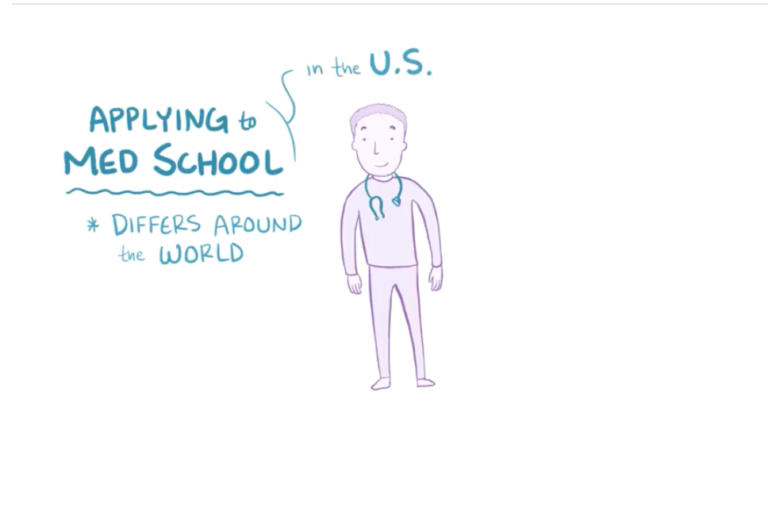
Residency and The Match
I’ve written before about the risks residents and fellows take by not utilizing the internal “due process” or appeal mechanisms available to them when facing discipline or even remediation. Court decisions have taught time and again that forgoing an ... Read more
Greg Care
Updated February 27, 2025 by Greg Care

News
In honor of the Student Doctor Network’s 25th anniversary this year, we’ve reviewed the community forums, articles, and tools that SDN provides to find the best pieces of advice. Check out our collection of gems ... Read more
Laura Turner
Published June 27, 2024

Medical School
Most medical students select a specialty based on their enjoyment of the clinical work for that field — the assessments, treatments, and procedures, or the disease states commonly treated. But these aspects are only a ... Read more
Sylvie Stacy, MD, MPH
Updated July 3, 2024 by Sylvie Stacy, MD, MPH

Residency and The Match
A recent decision out of the U.S. Court of Appeals for the Sixth Circuit, Mares v. Miami Valley Hospital, is a new entry in the persistent confusion and debate about whether, in the eyes of the ... Read more
Greg Care
Updated May 15, 2024 by Greg Care

Pre-Health
Premeds dream of reciting the Hippocratic Oath dressed in their new white coat embroidered with the crest of their medical school. The White Coat Ceremony, encouraged by the Gold Foundation to emphasize the importance of ... Read more
Emil Chuck, PhD
Updated March 6, 2024 by Emil Chuck, PhD

Pre-Medical
Dear Aspiring Physicians: I have been a long-time observer, educator, and supporter of physicians and those who aspire to that calling. As a physical therapist and educator in health care professions, I have spent over ... Read more
Elizabeth Ross, DPT, MMSc, ACC
Updated November 27, 2023 by Elizabeth Ross, DPT, MMSc, ACC

Pre-Medical
A highly sought-after speaker about integrating virtual reality and digital innovation, Rohan Jotwani (he/him) is an assistant professor in clinical anesthesiology and assistant director of education at Weill Cornell University School of Medicine. Dr. Jotwani ... Read more
Emil Chuck, PhD
Updated August 22, 2023 by Emil Chuck, PhD

Pre-Health
Choosing a career is among the most stressful decisions a person makes. Even narrowing the choice down to a healthcare profession still leaves you with many options to pick from. Healthcare professions available include physicians, ... Read more
Brittany Ferri
Updated August 25, 2022 by Brittany Ferri

Pre-Medical
Looking to college and beyond is a major step for a high school student. You are about to embark on your journey into adulthood and establish yourself as a college student. For students considering a ... Read more
Renee Marinelli
Updated August 30, 2022 by Renee Marinelli

Finding a Job
Read about steps 1 and 2 in Part 1 of this series here. Read about steps 3 and 4 in Part 2 of this series here. Read about steps 5 and 6 in Part 3 ... Read more
PracticeLink
Updated June 26, 2022 by PracticeLink

Physician Q&A
Dr. Emma Stanton is a psychiatrist and Regional Chief Partnerships Officer at Beacon Health Options, a company which is uses a data-driven approach to work with mental health service providers across the US. She is ... Read more
Gloria Onwuneme
Updated June 26, 2022 by Gloria Onwuneme

Finding a Job
You most likely believe the best time to start your medical job search is late autumn of the final year of training. That’s the standard advice, but it may not be the best for you. ... Read more
Robert Felberg
Updated June 26, 2022 by Robert Felberg

Finding a Job
Are you experiencing clinician burnout? Do you bring your patients’ emotional and physical burdens home with you every night? Yet, do you stay in patient care because you don’t know what else to do?It’s OK. ... Read more
Meredith Castin
Updated October 11, 2022 by Meredith Castin

Medical School
When medical students start to think about areas of practice to specialize in once they graduate, the area of medical research can sometimes be overlooked in favor of more traditional practice areas such as internal ... Read more
Brian Wu
Updated June 26, 2022 by Brian Wu

Residency and The Match
What is the Undifferentiated Medical Student podcast? Give us an intro. TUMS is an interview-based podcast about choosing a medical specialty and planning a career in medicine. Many medical students feel lost when it comes ... Read more
Student Doctor Network
Updated June 26, 2022 by Student Doctor Network

Residency and The Match
With Match Week approaching, this is an exciting and hectic time. As you prepare for the next phase of your medical career, it is also important to understand legal issues involved in the Match®, administered ... Read more
James P. Holloway
Updated June 26, 2022 by James P. Holloway

Pre-Medical
Wondering if a career as a doctor would be a good fit for you? Already decided you want to apply to medical school, but not sure where to start? In order to help premedical students understand what ... Read more
Student Doctor Network
Updated June 26, 2022 by Student Doctor Network

Healthcare News and Policy
Electronic medical records were an inevitable advancement. Paper filing could only go so far, and EMRs allowed the healthcare industry to simplify and automate clinical tasks for greater efficiency. Hospitals and practices throughout the world ... Read more
MaryAnn Stolgitis
Updated June 26, 2022 by MaryAnn Stolgitis

















